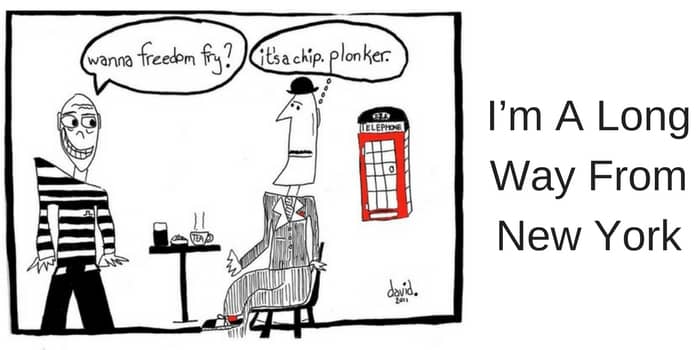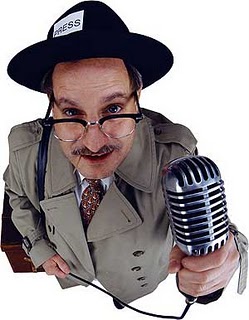 My English is a long way from New York.
My English is a long way from New York.
Most authors must have had the thought of having their novels translated into other languages, but in my case this week, my thought was of having my books translated into, um, eh, well, American!
Now, of course, this probably sounds really dumb, as I obviously write in English. But when one stops and thinks about the differences between US and UK English, there is a hell of a lot that would need changing to adapt my writing to US reading expectations.
So why would I even consider doing this?
Well, in all honesty, self-publishing is mostly an American thing. Yeah ok, the UK and Germany quite like ebooks, but not on the same scale as the US, so why shouldn’t I try to appeal to the biggest ebook market in the world, and at the same time, avoid or appease those minority of American reviewers, who on occasions, find it necessary to complain about my spelling and use of grammar.
‘Did you ever get shitty reviews?’
‘No, I have never received any bad reviews, except about my English.’
All I have to do is change my spelling (completely!), remove all uses of the present perfect and replace it with the past simple, and then, oh boy, there’s the vocabulary. Replace all uses of mobile with cell, boot with trunk, petrol with gas, bonnet with hood, chips with fries, pissed off with pissed, and perhaps even, lied with misspoke. Should I continue? Maybe not, as it would make a list down to your knees.
But I would definitively have to make the verb, write, direct. In British English, we politely and indirectly write to people, but if you live in the US, I promise I won’t write you anytime soon.
Enough to say that translating my English books into US English would take a hell of a lot of work, and that is something I avoid at all costs. Work? It’s a four letter word!
Um, if colour is color, why isn’t four, for?
Ok then. Here’s an easy solution to the problem. Work is a 4 letter word!
Yes, I am a very long way from New York.



It is one of the great pleasures of self-publishing that I no longer have to have this battle with editors at publishing houses. My view is that if an American reader is too parochial to read a novel written in a different dialect of English, then they’re probably not the right audience for my book. In fact, I don’t believe all Americans are that parochial, and I find the insistence of publishers that my English should be “translated’ into American, should be something American readers find offensive and patronising. I’ve even had one Big 5 publisher ask if I’d consider changing the location of one of my novels from Brisbane, Australia, to an American city “because Americans don’t like reading books set in other countries.’ Of course, it is hard to argue in favour of the intelligence and sophistication of American readers when you consider the clown school drop-outs the Republican Party considers fit to be presidential candidates.
Quite an interesting article. I’m an American and maybe I’m in the minority here, but I actually like reading books from English and non-American writers. The difference in vocabulary and grammar are very interesting to me, and I’d never be one to complain. Thanks for sharing!